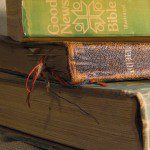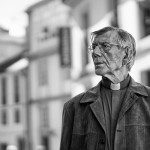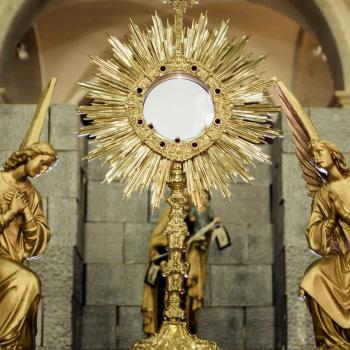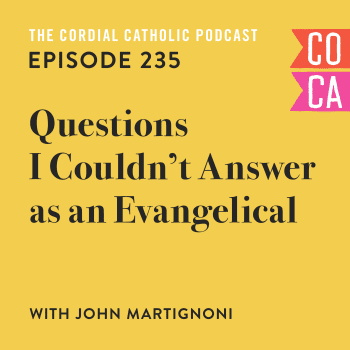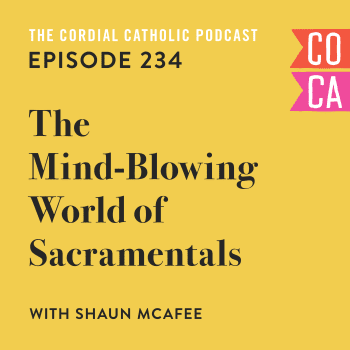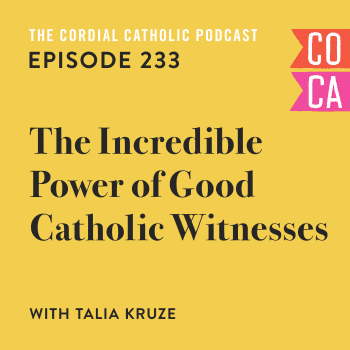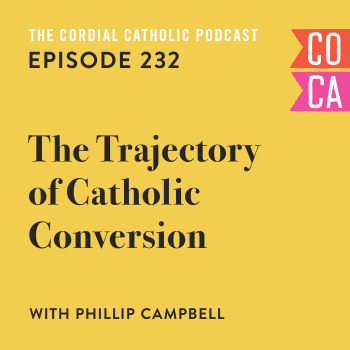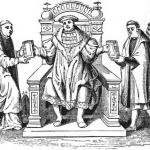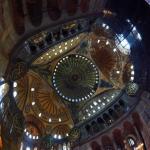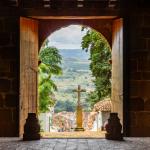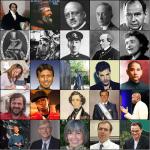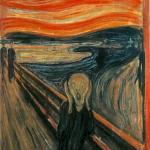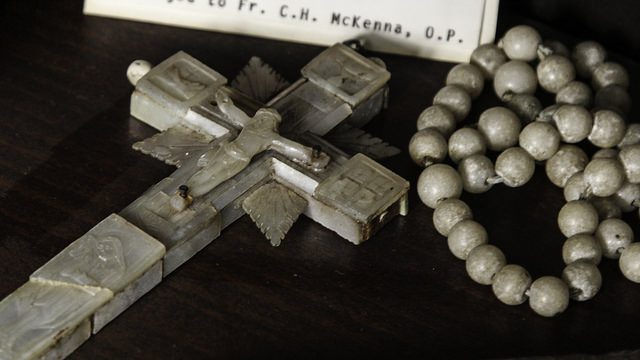
Somewhere along the way I picked up this quote by Henri Nouwen and, lately, it’s been deeply resonant,
You don’t think your way into a new kind of living. You live your way into a new kind of thinking.
I came at this whole Catholicism thing, initially, as a way of better understanding my own faith. I remember rationalizing it that way, at first. There are some great ideas in the Catholic Church, to be sure, and I wanted to know how to respond to them, as a Protestant. At some point, however, I found myself pocketing a rosary and it enriched my daily life. I could finger the crucifix in my pocket, sometimes even absently, and be reminded of the blood-spilled roots of my faith. Or, a little later on, I found myself desiring, deeply, to take part in a Mass. It’s strange, isn’t it, that for all my book learning I really had only ever experienced a Mass twice—and both times were fairly disappointing. But there I was, at a point, being drawn back again.
See, I thought my way into the Catholic Church. I’ve read a bunch. I’ve watched lectures, listened to podcasts, and been taking courses at my local parish. But it’s in beginning to live the Catholic life that my thinking has truly transformed. You can only think and learn so far—and thinking and learning doesn’t transform your life all by itself. I’m finding a beautiful, authentic Catholic faith is lived out, of course, but that that living is transformative.
For me, it’s been in the thick of things, in the depths, where I must simply live the Catholic life that I’m truly transformed.
I didn’t know, in the beginning, if I could live a sacramental faith. I didn’t even know what a sacrament was. Mine was a Puritan faith, a faith inherited by well-meaning Protestants hundreds of years removed from the original roots of the Reformation. Mine was a faith of me and the Bible and my local church had authority only so far as I, and the other believers, granted it. My faith was lived, daily, by trying to emulate Jesus and by consuming, metaphorically, the written words of the Bible.
Sunday morning, as a Bible-believing Protestant, was a necessary recharge of my batteries. An opportunity to worship God with fellow believers; hear an uplifting, inspiring, and educational sermon; and occasionally memorialize the Lord’s death and resurrection through Communion.
I was baptized because Jesus asked us to be baptized, as a sign.
But I found a new way of living and it’s transformed my thinking about my faith.
I began living a sacramental faith without really thinking it through. Sure, I’d read enough of Catholic theology and the stories of Protestant converts to know that something was going on in those beautiful, ornate, statue-filled churches but I didn’t know much more than that. I learned about the Eucharist, about the Catholic understanding of Baptism, about Confession, about the Communion of Saints and prayer and the rosary. I knew about these things but I didn’t know these things until I began to take those first few steps.
I started going to Mass and then, magically, I started to want to go to Mass. I started to look forward to going to Mass. I started talking with the saints, asking for their prayers and intercession in the same way I’d ask my best friends to talk with me, and pray for me, and I began to love the saints. I started early and earnest attempts at praying the rosary, and forgot most of the steps, but was drawn back to it again and again. I started to cross myself before, and after, I pray and now it’s difficult to remember, in different circumstances, to keep my hands to myself, so to speak.
There’s a leap of faith to be made to move from thinking to living, I think this is what Henri Nouwen was saying.
The leap is that, for all my thinking, for all my reading and listening and learning it was in the truly living that my faith is transformed.
See, I thought about a sacramental faith. I thought about the graces of God as mediated out through man in the Eucharist, in Baptism, in Confession, and I thought I couldn’t hack it. I couldn’t understand it. It’s too big for me; it’s too much. But I began to prayerfully live it.
I thought about all that stuff Catholics had built up around the gospel. All that stuff that, as a younger Protestant, I thought I knew all about—and I thought it was rubbish. I thought about all that stuff, and I thought I could never understand it, never get behind it. But I began to prayerfully live it.
I stumbled, early on in my conversion, to merely think my way into the Catholic Church. I thought it made sense. I thought its claims were sound. But this did not transform my life. It’s an old religion—and ancient Church—and I felt as if I were grasping at something far too large to ever understand. I tried to think my way into being a Catholic.
Instead, I found I lived my way into a new way of thinking. Through living as a Catholic, through slowly and surely praying and making those very early tentative steps through the door, I found myself thinking in a whole new way, about this great, big, beautiful thing called the Catholic Church.
I found, through living it, that a sacramental faith makes sense to me. I found, through living it, that the Communion of the Saints is a beautiful and God-given thing. I found, through living it, that the rosary is an exercise in Scripture, first and foremost, and a wholly captivating spiritual exercise.
I found through living that my thinking was transformed. Of course, my readers might be shouting, you can’t think your way into something new anymore than reading the description of a tablesaw on the Internet gives you a sense of what it’s like to actually use it. It’s true and while that certainly isn’t a perfect metaphor this is a place we get stuck in, all the time. It’s that leap of faith, described by Nouwen, wherein no matter what you’re thinking you must live it out to truly find a transformation.
It’s the living out, says Nouwen, that then, in turns, gives you a whole new perspective.


